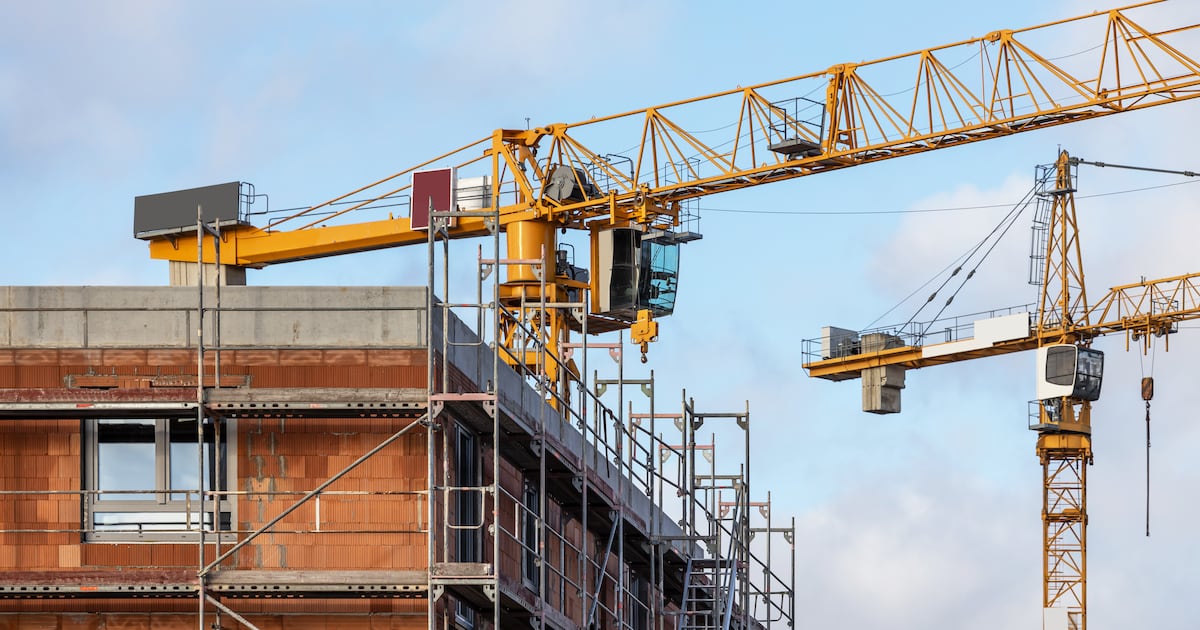Business
Tax Incentives Unveiled to Tackle Ireland’s Housing Shortage

The Irish government has announced a series of targeted tax incentives aimed at stimulating the construction of new apartments and enhancing infrastructure investment. This initiative, part of Budget 2026, addresses the country’s ongoing housing crisis. Minister for Finance Paschal Donohoe emphasized the urgency of this issue during his speech in the Dáil, stating that the housing crisis was “to the forefront of my mind” while preparing the budget.
To support the development of more housing units, the government has allocated €11.3 billion to the Department of Housing. Minister for Public Expenditure Jack Chambers underscored that building more homes is “this government’s absolute priority.” As part of these measures, the VAT rate on the sale of new apartments will be reduced to 9 percent, down from 13.5 percent. This change takes effect immediately and will remain in place until the end of 2030.
Donohoe explained that this VAT reduction aims to bridge the viability gap in apartment construction, aligning with a social policy focused on delivering higher-density living spaces. In addition, developers will benefit from a corporation tax deduction for certain expenses incurred during the construction of new apartments and the conversion of non-residential buildings into apartments. To further stimulate affordable housing, profits from homes under the Cost Rental Scheme will be exempt from corporation tax.
A new derelict property tax will replace the existing derelict site levy, maintaining a minimum tax rate of 7 percent. This new tax is set to be implemented in 2027. The government is also allocating €205 million to establish a housing activation infrastructure fund. This fund will support the efforts of the newly formed Housing Activation Office (HAO), which aims to expedite home building by addressing infrastructure delays.
Despite these initiatives, the budget reflects a notable reduction in one-off relief measures for renters, first-time buyers, and existing homeowners compared to previous years. The Rent Tax Credit has been extended for three years at its current levels—€1,000 for individuals and €2,000 for couples. While there was an expectation to gradually increase this credit, no such changes materialized.
The Help to Buy scheme, which allows first-time buyers of newly built homes valued under €500,000 to receive tax relief of up to €30,000, has been extended as part of the Starter Homes programme. This programme has been allocated a budget of €1.2 billion, aiming to deliver 15,000 new homes by 2026.
For homeowners, the mortgage interest tax relief has been extended for an additional two years but will be reduced in its final year. Homeowners can claim €1,250 for the year 2025 and €625 for 2026. In terms of social housing, the government will allocate €2.9 billion for the construction of 10,200 new social homes and second-hand acquisitions by local authorities, maintaining the same target as the previous year.
The housing measures have faced criticism from opposition parties and advocacy groups. Rory Hearne, housing spokesperson for the Social Democrats, expressed concern that the budget fails to provide adequate support for those in need of affordable housing. He noted that “renters, generations stuck in their childhood bedrooms, and working families will see little change from a budget completely lacking in vision.”
Similarly, Focus Ireland, a homelessness charity, criticized the budget for not addressing homelessness for the second consecutive year. Mike Allen, the charity’s director of advocacy, highlighted that this omission raises serious concerns regarding the government’s commitment to tackling one of the nation’s most pressing challenges.
As Ireland continues to grapple with its housing issues, the government’s new budget initiatives represent a significant step towards alleviating some of these pressures, though critics argue that more comprehensive solutions are necessary to address the root causes of the crisis.
-

 Top Stories3 months ago
Top Stories3 months agoTributes Surge for 9-Year-Old Leon Briody After Cancer Battle
-

 Entertainment4 months ago
Entertainment4 months agoAimee Osbourne Joins Family for Emotional Tribute to Ozzy
-

 Politics4 months ago
Politics4 months agoDanny Healy-Rae Considers Complaint After Altercation with Garda
-

 Top Stories4 months ago
Top Stories4 months agoIreland Enjoys Summer Heat as Hurricane Erin Approaches Atlantic
-

 World5 months ago
World5 months agoHawaii Commemorates 80 Years Since Hiroshima Bombing with Ceremony
-

 Top Stories3 months ago
Top Stories3 months agoNewcastle West Woman Patricia Foley Found Safe After Urgent Search
-

 Top Stories5 months ago
Top Stories5 months agoFianna Fáil TDs Urgently Consider Maire Geoghegan-Quinn for Presidency
-

 World5 months ago
World5 months agoCouple Convicted of Murdering Two-Year-Old Grandson in Wales
-

 World5 months ago
World5 months agoGaza Aid Distribution Tragedy: 20 Killed Amid Ongoing Violence
-

 World5 months ago
World5 months agoAristocrat Constance Marten and Partner Convicted of Infant Murder
-

 Top Stories4 months ago
Top Stories4 months agoClimbing Errigal: A Must-Do Summer Adventure in Donegal
-

 Top Stories4 months ago
Top Stories4 months agoHike Donegal’s Errigal Mountain NOW for Unforgettable Summer Views









